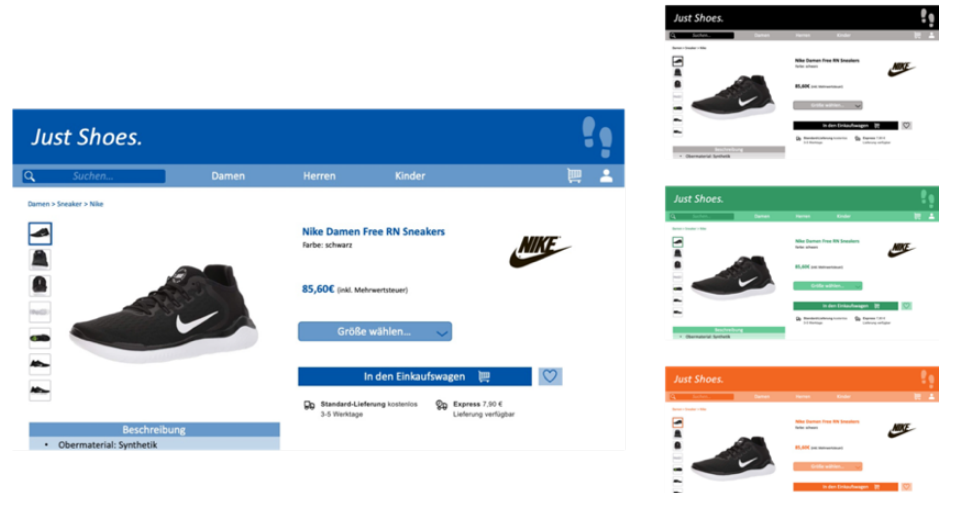fNIRS can robustly measure brain activity during memory encoding and retrieval in healthy subjects
## Background Knowledge * encoding : 인지과정 혹은 정보 처리 과정의 한 형태로, 청각, 시각, 촉각...
NIRS(Near Infrared Spectroscopy) : 근적외광(파장 650~1000nm)을 시료(생체조직)에 조사하여 생체를 투과하거나 생체 내에서 반사한 빛을 검출하여 비침습적으로 뇌, 근육 및 기타 조직 내의 헤모글로빈(Hemoglobin)의 농도와 산소결합(Oxygeation)을 검출할 수 있는 영상기술이다. 우울증, 정신분열증, 알츠하이머 병, 뇌졸증 등의 치료를 위해 사용하기 위한 시도가 진행되고 있다.
fNIRS(functional Near Infrared Spectroscopy) : 비침습적인 뇌기능 계측방법으로 근적외광을 이용해 뇌의 혈류변화를 비침습적으로 계측하는 방법이다. 계측원리는 근적외광을 이용한 뇌혈류의 헤모글로빈 산소화 정보듸 측정에 바탕을 두고있다.
전전두피질(prefrontal cortex;PFC) : 전두옆의 앞 부분을 덮고있는 대뇌피질로 사람의 생존본능, 성격과 연관되어 있다. 또한 계획하는 일, 의사결정, 사회적 행동, 조율, 발화 등이 모두 이 부위의 기능으로 여겨진다. 즉, 생각과 행동을 조율하는 것을 담당한다.
대뇌피질 : 대뇌의 표면을 감싸고 있는 신경세포들의 집합

헤모글로빈 : 적혈구에 존재하는 단백질 분자로, 적혈구에 전형적인 모양을 제공(가운데가 좁은 원형) Hb의 주요 역할은 산소를 폐에서 신체 조직으로 운반하고, 이산화탄소로 교환하고, 신체 조직에서 폐로 이산화탄소를 가져와 산소와 다시 교환하는 것 (헤모글로빈 역할 : 폐에서 산소를 가져와 신체조직으로 운반(산화 헤모글로빈) > 신체조직에서 산소가 사용 > 이산화탄소를 폐로 가져와 다시 산소로 교환(탈산화 헤모글로빈))
Blue of all colors seems to be generally preferred by humans and animals. Consequently, the use of this color in ecommerce context has several positive effects such as increased trustworthiness and aesthetic ratings. These effects are, in this study, hypothesized to be caused by specific neural processes in the prefrontal cortex of human decision makers. Consequently, this study tackles the research question whether there is a distinct neural activation pattern for blue websites that helps to explain why blue is often most favored.
H1: Blue websites will reveal significant neural activity changes in PFC areas related to processing pleasant stimuli.
H2: Blue websites will reveal significant neural activity changes in PFC areasrelated to reduced cognitive processing.
Study desgin : four different color manipulated websites (blue, green, orange, black) + Control (non-color)

H1 : the left dlPFC seems to be related to processing pleasant stimuli which was identified increased for the blue website. Further, areas related to processing negative emotional stimuli such as the dmPFC and vlPFC were found to be decreased for the blue website which further supports our H1
H2 : Cognitive deactivations were also observable in the dmPFC and vlPFC for the blue website, which both point to decreased effort to process the first impression, behavioral adjustments, and semantic processing – all of which can be regarded as more cognitive than emotional functions and thus, these findings support H2. However, the dlPFC which also incorporates cognitive processing through its role in performance monitoring, error detection, and behavior adjustment does not support this hypothesis

Nissen, A. (2020, June). Why we love blue hues on websites: a fNIRS investigation of color and its impact on the neural processing of ecommerce websites. In NeuroIS Retreat (pp. 1-15). Springer, Cham.
Avenco comes with a built-in contact form.

